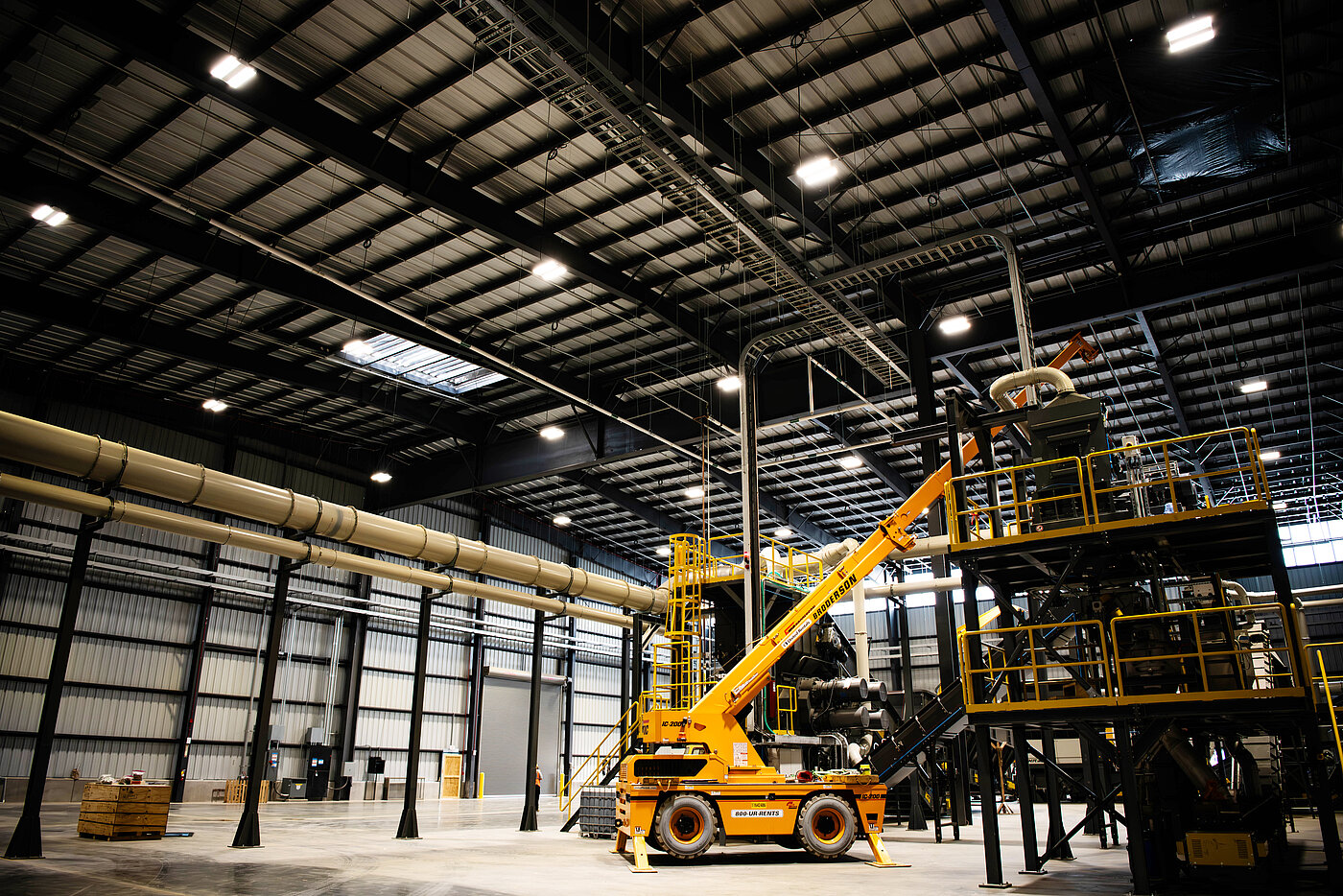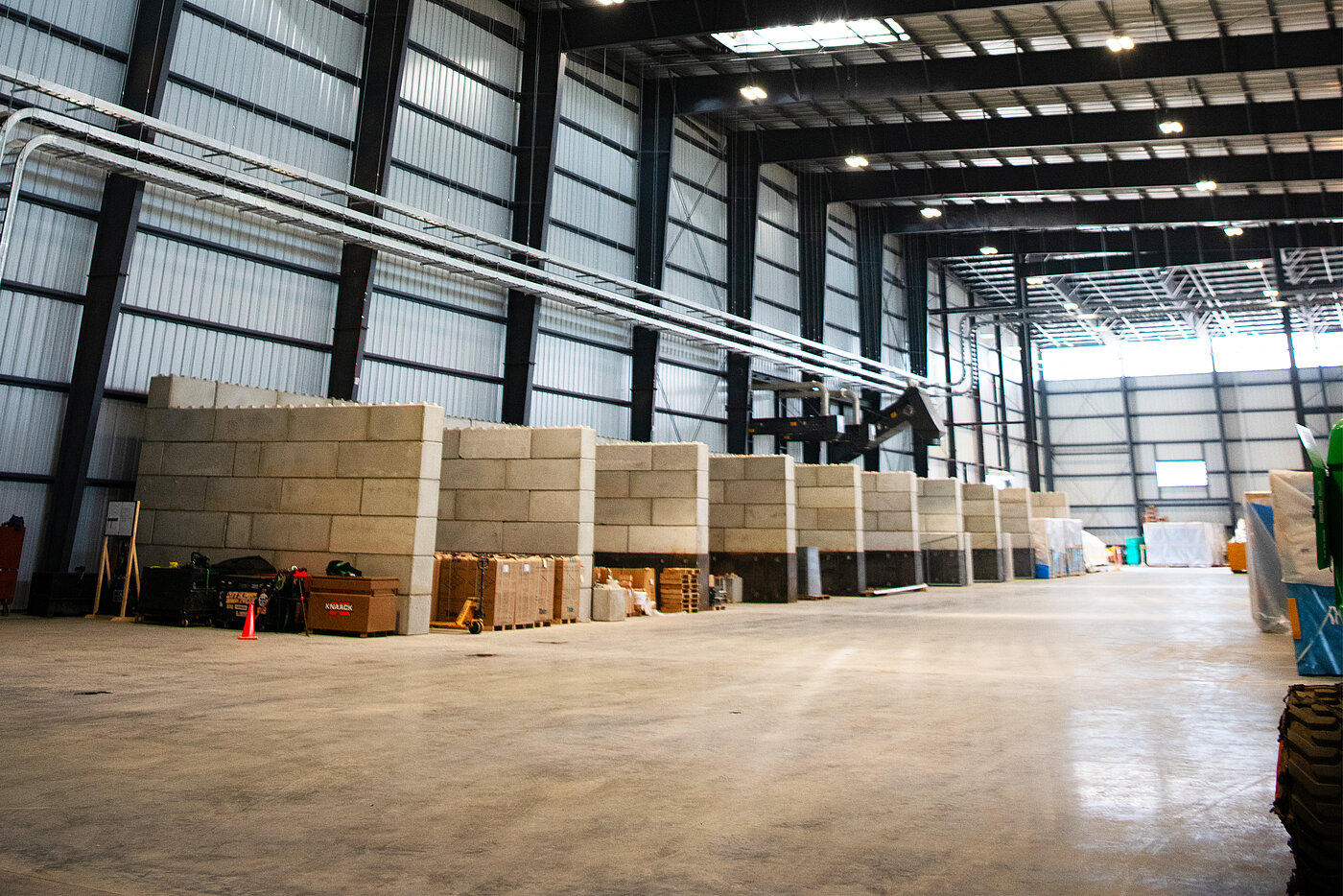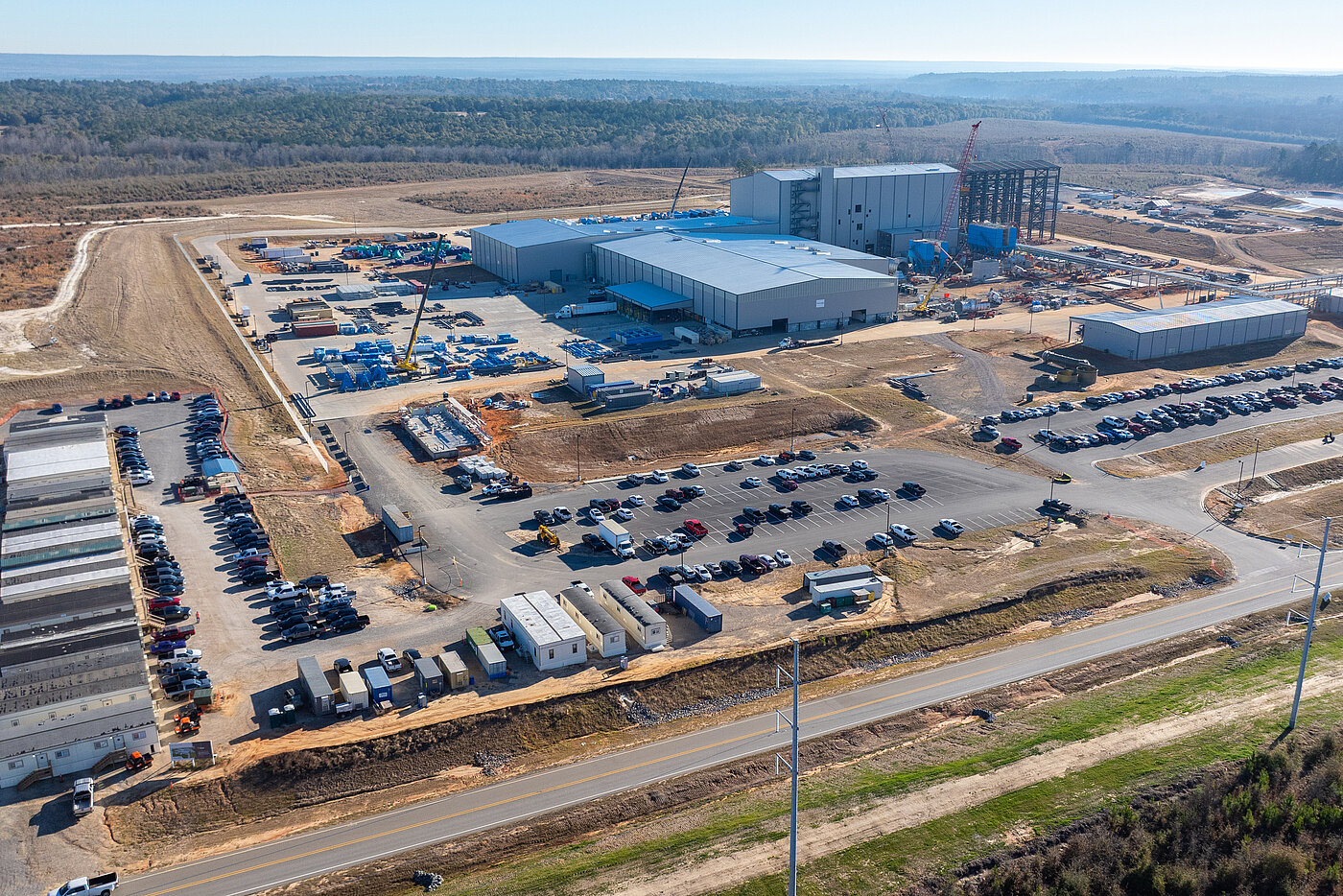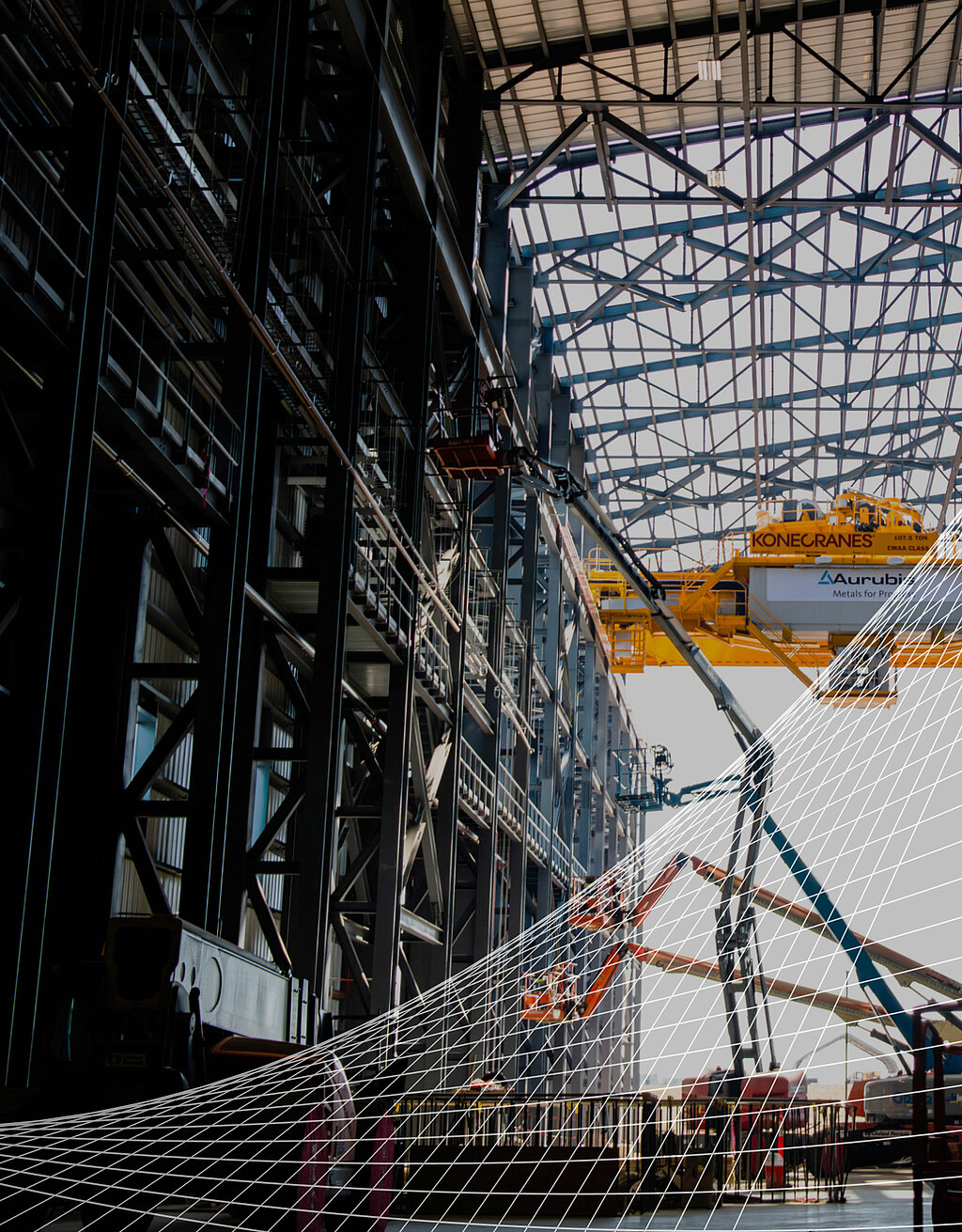
Scalability
“Our successes are scalable!”
In an interview, Thomas Sturm, Senior Vice President Corporate Development, explains scalability based on examples from daily business, and how Aurubis is successfully using the strategically smart tactic of thinking and acting with a modular approach.
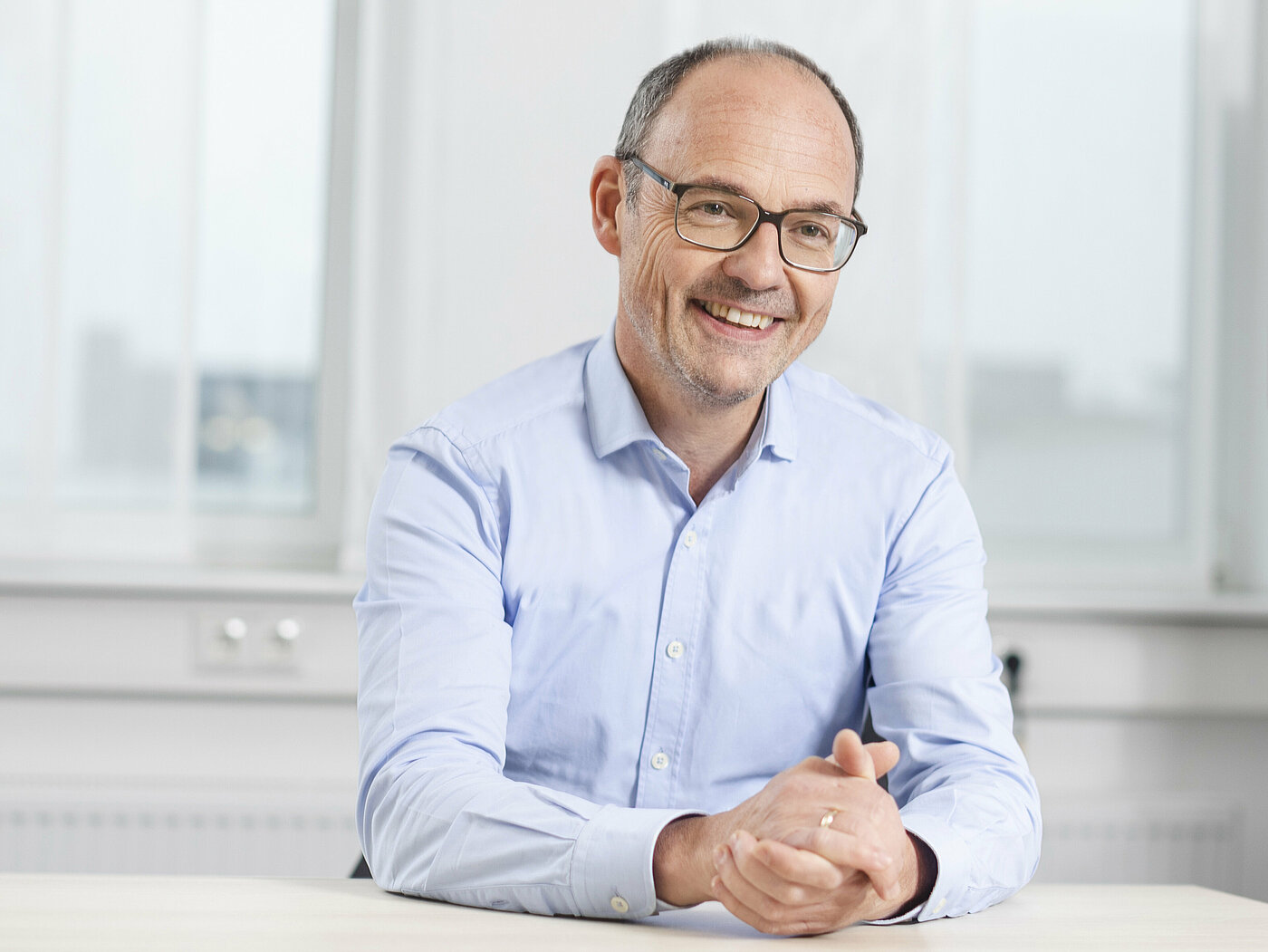
Thomas, scalability refers to the ability to expand and grow. What does that mean when we’re talking about Aurubis?
Thomas Sturm We have a modular mindset. Our projects aren’t designed as one-offs; they are fundamentally transferable, taking the respective local circumstances into account. That means they’re not just successful once — they’re, well, scalable. Quick execution, higher efficiency, synergies and learning effects in construction and operation are key. And shaping and driving the transformation of our industry towards sustainable metal production in everything we do.
How does a company like Aurubis manage to scale its successes?
Thomas Sturm Our new recycling plant in Georgia is a good example of this. Aurubis Richmond is developing as a module structure that we planned with an eye to the future and are now realizing step by step: Following the commissioning of the first module in the second half of 2024, we plan to start Module 2 in early 2026. Thanks to the very good market conditions in the US, we’ve sped up the implementation of the second stage and doubled processing capacities. Our ambition at Aurubis Richmond is to continue expanding our value chain beyond blister copper, all the way to wire production. We want to grow in line with the possibilities presented by the markets. And we have additional plans for future investments up our sleeve. Aurubis Richmond can serve as a blueprint for other possible sites in the US and beyond.
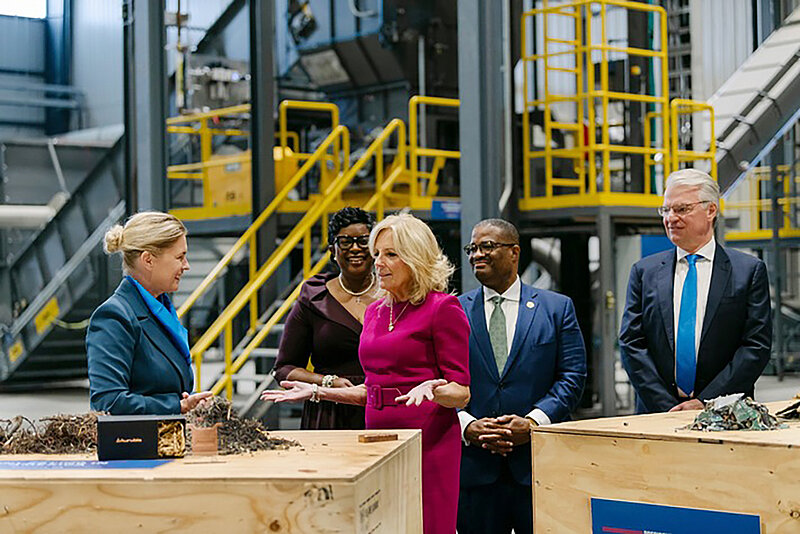
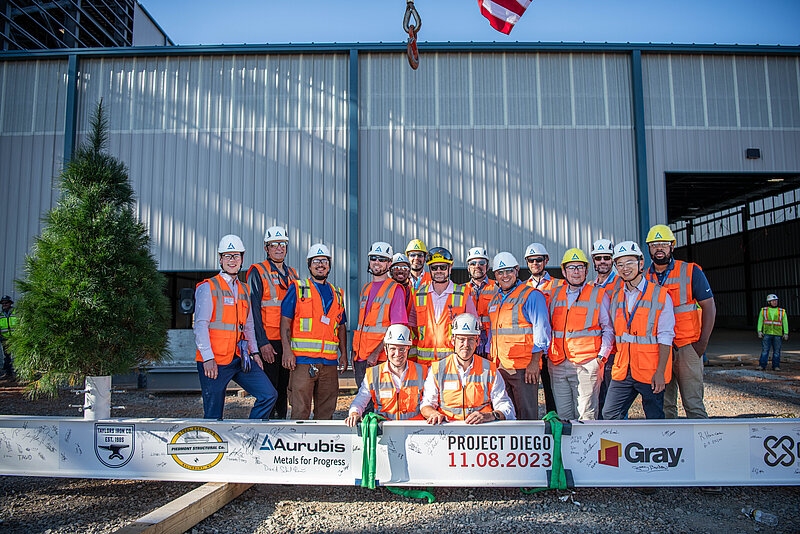
What are scaling effects?
Scalability refers to the ability of a system, network or process to change in size. Usually, it means a system’s ability to grow.
(Source: Wikipedia)
Metal production is a complex business with long lead times. How agile can growth actually be for a company like Aurubis?
Thomas Sturm Growth requires planning ahead and a sound foundation rooted in facts — as well as maximum flexibility and adaptability. We are closely reviewing and monitoring where today’s markets are developing, and our project pipeline contains many more ideas and plans that we haven’t made public yet. When opportunities arise and we identify a growth investment that makes sense — large or small — we’ll take it on, confident in the results of our analyses, though it takes bit of courage too, of course. That’s essential. And it goes faster if we can reuse existing technologies, because we don’t have to start all over with our planning.
Another example of agility is the investment in expanding selenium production at our RETORTE subsidiary, a local top-tier company in a niche global market see box that is extending its access to promising, specialized food and pharmaceutical markets with a new facility in line with Good Manufacturing Practice. Although this represents a smaller project compared to others, the investment decision was made with a sense of purpose. After all, it doesn’t just mean securing the site’s future, but also acknowledging RETORTE as a key component of our smelter network. Because a by-product of copper production in Hamburg, raw selenium, is processed into valuable products here.
Expanding selenium production at RETORTE
As the global market leader, RETORTE GmbH produces about 50 different selenium products for around 500 customers in 15 industries worldwide. The Aurubis subsidiary is further expanding its selenium production for the high margin-growth markets of the food and pharmaceutical sectors. The groundbreaking ceremony for a € 7 million investment in a new production facility in accordance with Good Manufacturing Practice took place in June 2023. With this investment, Aurubis is strengthening the company located in Röthenbach a. d. Pegnitz with approximately 40 employees as a key component of the valuable multimetal material cycle. All of the raw selenium from smelting operations in Hamburg is refined and processed into products of value here (see photo below).

Where can we see the flexibility of Aurubis’ smelter network?
Thomas Sturm Each one of our smelters has its own specific strengths. It is crucial to optimally connect them for the best overall result. That’s something we’re good at. The strength of our supply chain is especially evident, even during shutdown periods. Our sites leverage the high degree of flexibility in our smelter network to secure the supply for production. Our most important objectives in the Group are to utilize all our facilities, to recover our metals efficiently, and to maximize productivity. For instance, the anode slimes for our new ASPA recycling facility in Beerse, Belgium, will come from multiple sites in the company, and the blister copper that we’ll produce at Aurubis Richmond in the US will initially be processed in Europe for the most part. Another example shows how we take sustainability aspects such as reducing CO2 emissions into consideration in our investment projects: Expanding our tankhouse in Pirdop will allow us to process all the anodes produced at the site in Bulgaria, too, instead of transporting them to other sites. This opens up new capacities and saves CO2 in the Group thanks to the elimination of the transports.
